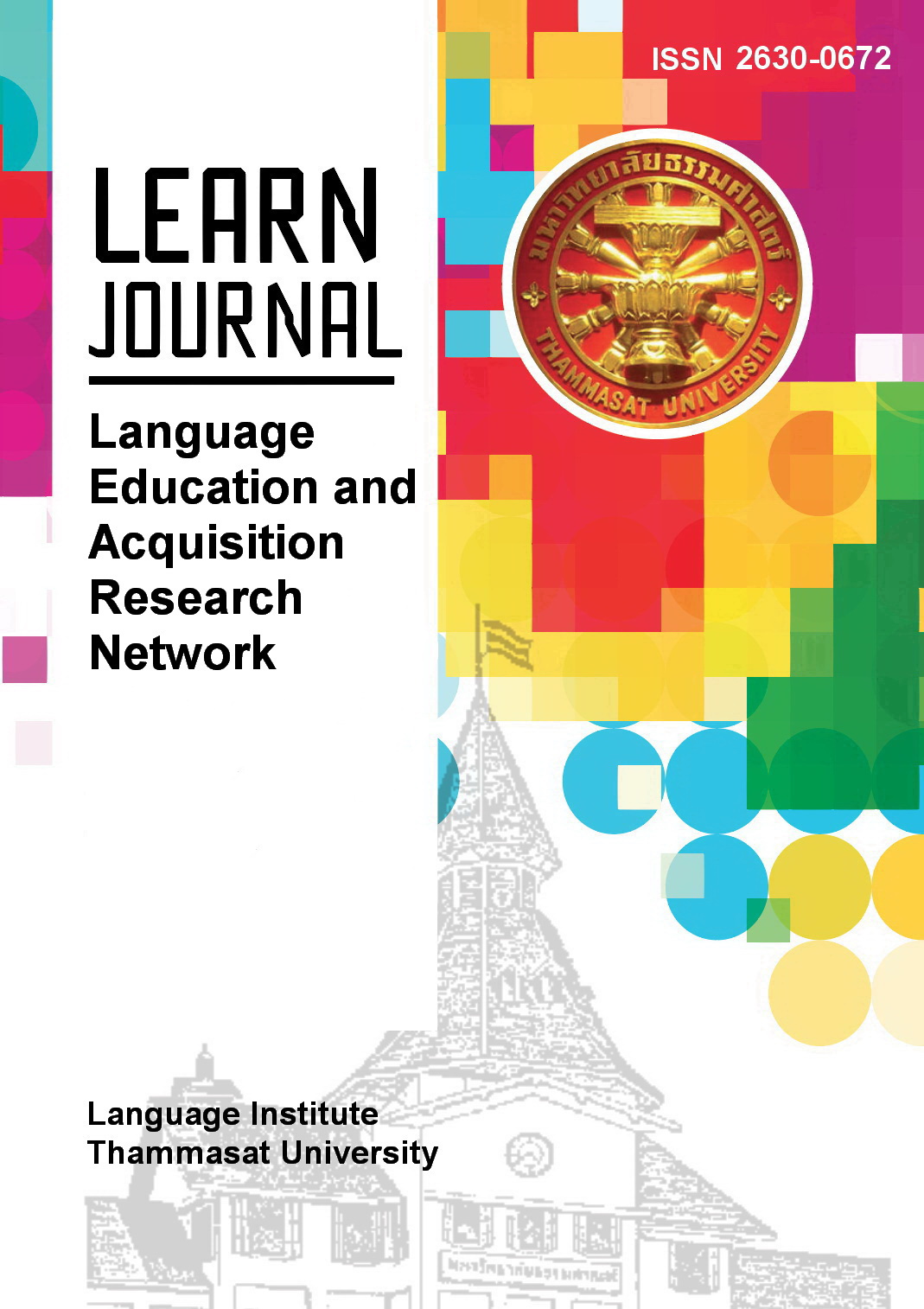Lower and Higher Level Comprehension Skills of Undergraduate EFL Learners and Their Reading Comprehension
Main Article Content
Abstract
The study examined the relationships between reading comprehension and measures of lower level comprehension skills (vocabulary, grammar, and word processing) and a higher level comprehension skill (inference making), to determine if these measures of higher and lower level comprehension skills predicted different levels of variance in reading comprehension. The group of 126 undergraduate Thai students was categorized as low vocabulary (n=65) or high vocabulary (n=61) to determine if these relationships varied due to vocabulary level. Correlation demonstrated positive relationships between all measures (vocabulary, grammar, word processing, inference making and reading comprehension). The findings revealed that positive correlations were found among all measures; vocabulary and inference making showed the largest correlations. Regression analyses focusing on explaining variance in reading comprehension indicated that lower level comprehension skills, such as grammar, explained the largest percentage of variability for the low vocabulary group, whereas the ability to make inferences (a higher level comprehension skill) was the largest predictor for the high English vocabulary group. The findings provide useful insights into the roles of lower and higher level comprehension skills in the prediction of reading comprehension and how to apply this knowledge in EFL reading instructions.


